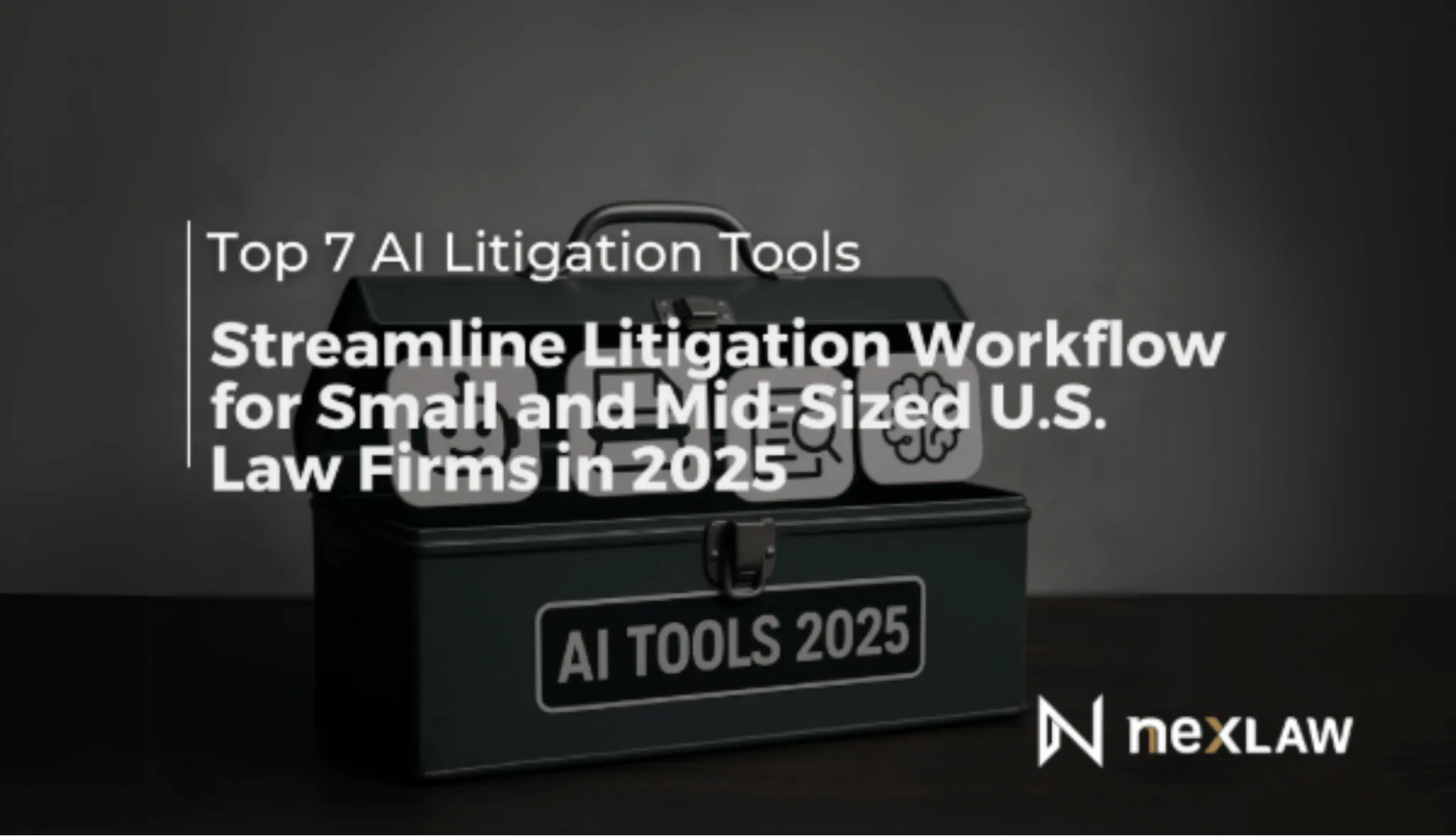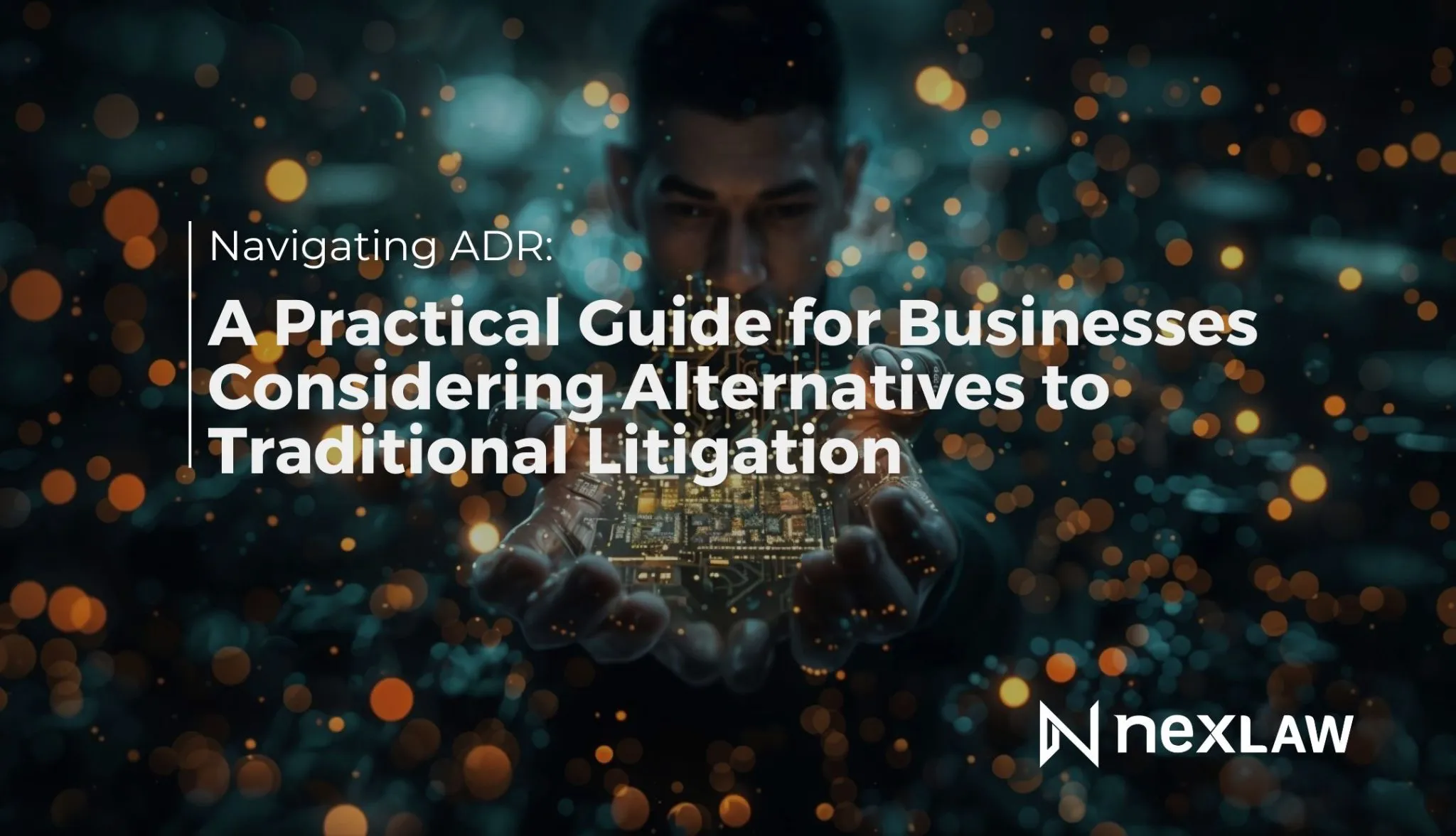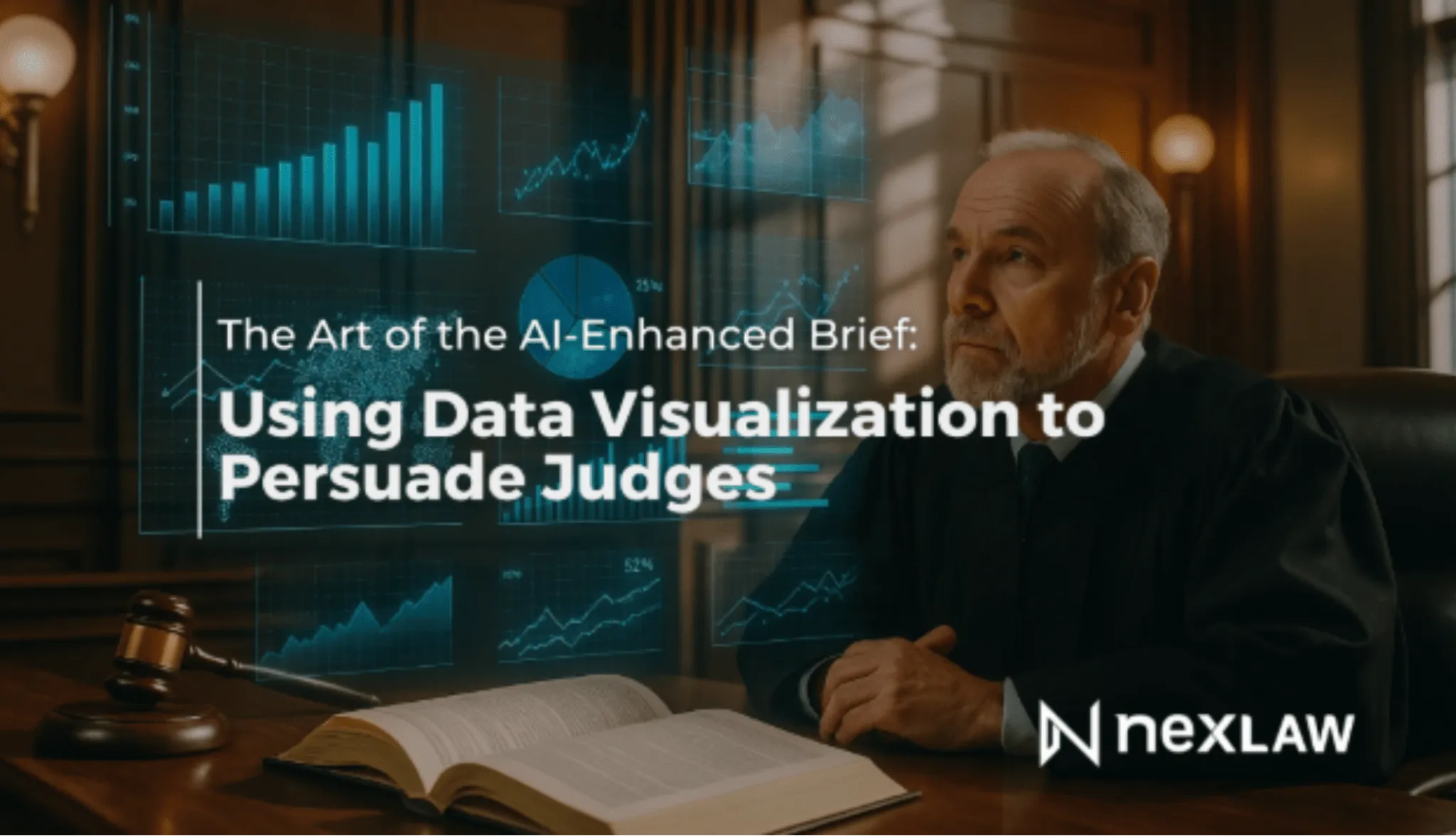Technology is revolutionizing litigation workflows, enabling legal professionals to work smarter, faster and more efficiently. For small and mid-sized law firms in the U.S., incorporating AI tools into litigation processes is no longer optional but essential to stay competitive and deliver superior client outcomes. This article highlights the top 7 affordable AI litigation platforms designed to streamline litigation workflows for small and mid-sized U.S. law firms tailored for U.S. legal professionals, focusing on practical benefits, usability and cost-effectiveness.
Unlock Legal Insights Instantly
1. NexLaw AI – The Litigation Workflow Powerhouse

NexLaw AI is a leading litigation platform designed to streamline the entire litigation lifecycle; from case analysis and legal research to trial preparation and post-trial submissions. It is particularly well-suited for small and mid-sized law firms seeking to reduce manual workloads and improve case outcomes.
Key Features:
- Legal AI TrialPrep: Automates trial preparation, reducing preparation time from 100 hours to minutes by providing case law suggestions, strategic insights and argument-building tools.
- Advanced Legal Research: AI-powered search across statutes, case law and regulations with multi-jurisdictional coverage including U.S. federal and state laws.
- Case Law Summarizer: Condenses lengthy judicial opinions into digestible summaries for quick understanding.
- Secure Cloud Infrastructure: Safeguards client confidentiality with robust encryption, granular access controls and a privacy-first cloud platform built on Amazon Web Services (AWS) with ISO 27001:2013 certification ensuring data sovereignty and compliance with leading security standards.
- Judge and Lawyer Analysis: Analyzes judicial tendencies, past rulings and decision-making patterns for tailored strategies. Provides a comprehensive overview of opposing lawyers’ track records and strategies to anticipate legal moves.
- Dispute Resolution & Mediation Support: Assists in arbitration and mediation by automating document analysis, managing case files and suggesting potential settlement terms.
Best For:
- Small to mid-sized law firms handling complex litigation cases.
- Legal teams needing efficient AI trial preparation and file management.
Pros & Cons:
| Pros | Cons |
|---|---|
| Dramatically reduces trial prep time | Internet access required for full functionality |
| Comprehensive multi-jurisdictional tools | Focused mainly on litigation processes |
| Strong data security and compliance |
Pricing:
Flexible and affordable plans tailored for small to mid-sized firms, making NexLaw accessible without sacrificing functionality.
2. CoCounsel – AI Legal Assistant for Litigation

CoCounsel by Thomson Reuters is an AI-powered assistant designed to support attorneys with legal research, document review and contract compliance during litigation. CoCounsel is built on advanced natural language processing (NLP) and machine learning (ML) algorithms to understand and analyze legal text, providing insights and automating tasks that traditionally require significant manual effort.
Key Features:
- Generative AI for drafting legal research memos: Quickly generate well-researched legal memos on a variety of topics.
- Automated document review: Identify relevant case law and issues within large sets of documents.
- Brief and Motion Analysis: Summarize and analyze briefs and motions.
- Deposition Summarization: Condense depositions into easily digestible summaries.
Best For:
- In-house legal teams and law firms needing rapid legal research and document analysis.
- Attorneys seeking to automate tasks such as legal writing, research and analysis.
Pros & Cons:
| Pros | Cons |
|---|---|
| Fast and accurate analysis | Requires user familiarity |
| Comprehensive case law references | Limited Document Drafting Capabilities |
| Improves legal writing and research speed | High Cost |
Pricing:
Premium subscription model; details available upon request. Casetext offers different subscription tiers and pricing may vary based on the size of the firm and the specific features needed.
3. Everlaw – Comprehensive eDiscovery and Litigation Support
.webp)
Everlaw specializes in electronic discovery, helping firms manage large volumes of litigation documents with AI-driven predictive coding and collaboration tools. Their cloud-based platform combines advanced technology with an intuitive design, enabling legal teams to handle complex discovery tasks efficiently and effectively.
Key Features:
- Predictive Coding: Uses AI to prioritize and classify documents for review, helping to reduce manual effort and speed up discovery.
- Advanced Analytics: Offers reporting and analytics focused on document sets and review progress, helping teams track their work and identify trends.
- Storybuilder: A visual tool for building case narratives but limited to organizing and presenting evidence from discovery.
- Case Strategy Tools: Provides basic timeline creation and document organization, primarily to support discovery and review, not comprehensive case strategy or trial preparation.
Best For:
- Firms involved in complex litigation requiring extensive discovery.
- Organizations needing to manage and analyze large volumes of electronic data.
Pros & Cons:
| Pros | Cons |
|---|---|
| Efficient document management | Steep learning curve |
| Strong collaboration tools | Pricing can be high |
| Advanced AI for document prioritization |
Pricing:
Subscription-based; contact Everlaw for details. Pricing is often customized based on data volume, user count and specific features required.
4. Luminance – AI-Driven Document Review and Analysis

Luminance uses proprietary legal language models to automate contract review, due diligence and document analysis. It uses unsupervised machine learning to understand the context of legal documents, identify key information and highlight potential risks.
Key Features:
- High-accuracy clause identification: Automatically identifies and extracts clauses from contracts and other legal documents.
- Multi-language support: Supports multiple languages, making it suitable for international litigation.
- Rapid deployment: User-friendly interface allows for quick adoption and ease of use.
- AI-powered contract negotiation: Assists in drafting and negotiating contracts by suggesting relevant clauses and identifying potential issues.
- Risk scoring: Highlights potential risks and compliance issues within documents.
Best For:
- Firms handling large contract volumes and due diligence processes.
- Legal teams needing to quickly analyze and review vast amounts of documents.
Pros & Cons:
| Pros | Cons |
|---|---|
| Accurate and fast review | Initial setup required |
| User-friendly | Costly for smaller firms |
| Supports multiple languages |
Pricing:
Premium pricing; demos available upon request. Luminance’s pricing is typically tailored to the size and needs of the firm.
5. Diligen – Efficient Due Diligence and Document Analysis

Diligen offers AI-powered extraction of key data points and customizable workflows for document review and due diligence. It helps legal teams automate the extraction of key information from contracts, leases and other legal documents, improving efficiency and accuracy.
Key Features:
- Automated data extraction: Automatically extracts key data points from contracts and legal documents.
- Integration with existing legal systems: Integrates with popular document management systems, allowing for seamless data transfer.
- Customizable workflows: Enables users to create custom workflows for specific document review tasks.
- AI-powered summarization: Generates summaries of key clauses and provisions.
- Compliance monitoring: Tracks compliance with regulatory requirements.
Best For:
- Firms seeking to streamline due diligence and contract review.
- Legal teams needing to automate the extraction of key information from documents.
Pros & Cons:
| Pros | Cons |
|---|---|
| Streamlines document review | Limited features vs. larger platforms |
| User-friendly interface | Requires integration effort |
| Automates data extraction |
Pricing:
Customized based on firm size and needs. Diligen’s pricing is typically tailored to the specific requirements of the firm.
6. Clio Manage – Legal Case Management Platform

Clio Manage is a cloud-based platform for organizing cases, documents and client communications. It helps streamline law firm operations with basic automation and collaboration tools.
Key Features:
- Case & Matter Management: Centralizes all case details, deadlines and communications.
- Document Management: Stores, organizes and automates legal documents and e-signatures.
- Task Automation: Automates routine tasks and billing processes.
- Client Collaboration: Provides secure client portals for communication.
Best For:
- Small to mid-sized law firms seeking simple case management.
- Firms needing basic workflow automation and client collaboration.
Pros & Cons:
| Pros | Cons |
|---|---|
| Simple, user-friendly | Limited advanced litigation features |
| Good for core firm tasks | Pricing may add up |
| Cloud-based and secure |
Pricing:
Subscription-based; starts at $49 per user/month for core features. Advanced plans available.
7. Ross Intelligence – AI Legal Research Assistant

Ross Intelligence uses natural language processing to provide quick access to case law, statutes and legal answers. The AI-powered research tool understands legal questions posed in natural language and provides relevant results.
Key Features:
- Fast, intuitive legal research: Natural language interface allows attorneys to ask questions in plain English and receive relevant results.
- Ability to answer complex legal questions: AI-powered search engine understands the context of legal questions and provides comprehensive answers.
- User-friendly interface: Tailored for lawyers and legal professionals, making it easy to use and navigate.
- Tracking of legal developments: Monitors changes in case law and statutes, keeping attorneys up-to-date.
- Analysis of legal documents: Assists in the analysis of legal documents and identifying key issues.
Best For:
- Lawyers needing rapid and accurate legal research.
- Legal teams seeking to improve their research efficiency.
Pros & Cons:
| Pros | Cons |
|---|---|
| Quick search capabilities | Limited database coverage |
| Intuitive interface | Subscription costs add up |
| Understands natural language |
Pricing:
Subscription-based; details available upon request. Ross Intelligence offers different subscription tiers and pricing may vary based on the size of the firm and the specific features needed.
Practical Guide to Implementing AI Litigation Tools
For small and mid-sized law firms, successful AI adoption requires a strategic approach:
Assess Your Needs

Identify pain points in litigation workflow such as document review, research or trial prep.
Evaluate Tools
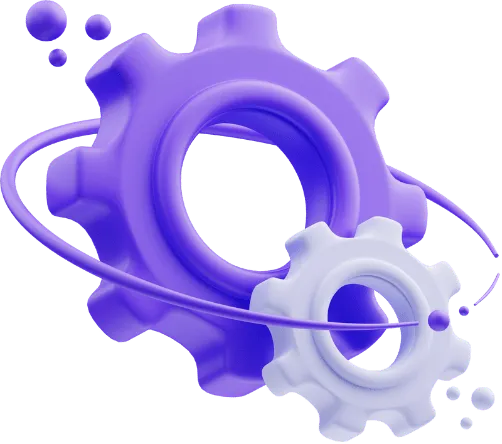
Consider usability, integration capabilities and jurisdictional coverage. NexLaw AI stands out for U.S. litigation workflows.
Pilot Programs
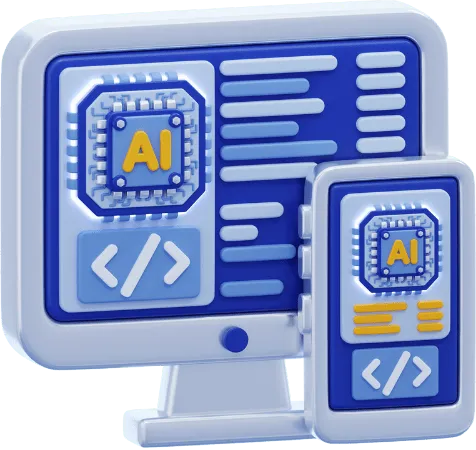
Test selected tools with your team to gather feedback and measure efficiency gains.
Train Staff

Ensure thorough training for seamless adoption and maximum benefit.
Monitor & Optimize

Track performance metrics like time saved, error reduction, and user satisfaction to refine usage.
Conclusion
In 2025, AI litigation tools like NexLaw AI and others listed here are transforming how small and mid-sized U.S. law firms manage litigation workflows. These platforms offer affordable, scalable litigation solutions that automate time-consuming tasks, enhance legal research, and improve trial preparation efficiency. By embracing these technologies, legal professionals can focus more on strategy and client advocacy, gaining a competitive edge in an increasingly tech-driven legal landscape.
If you want to explore how NexLaw AI can revolutionize your litigation workflow, consider booking a demo here to see its full capabilities in action.
